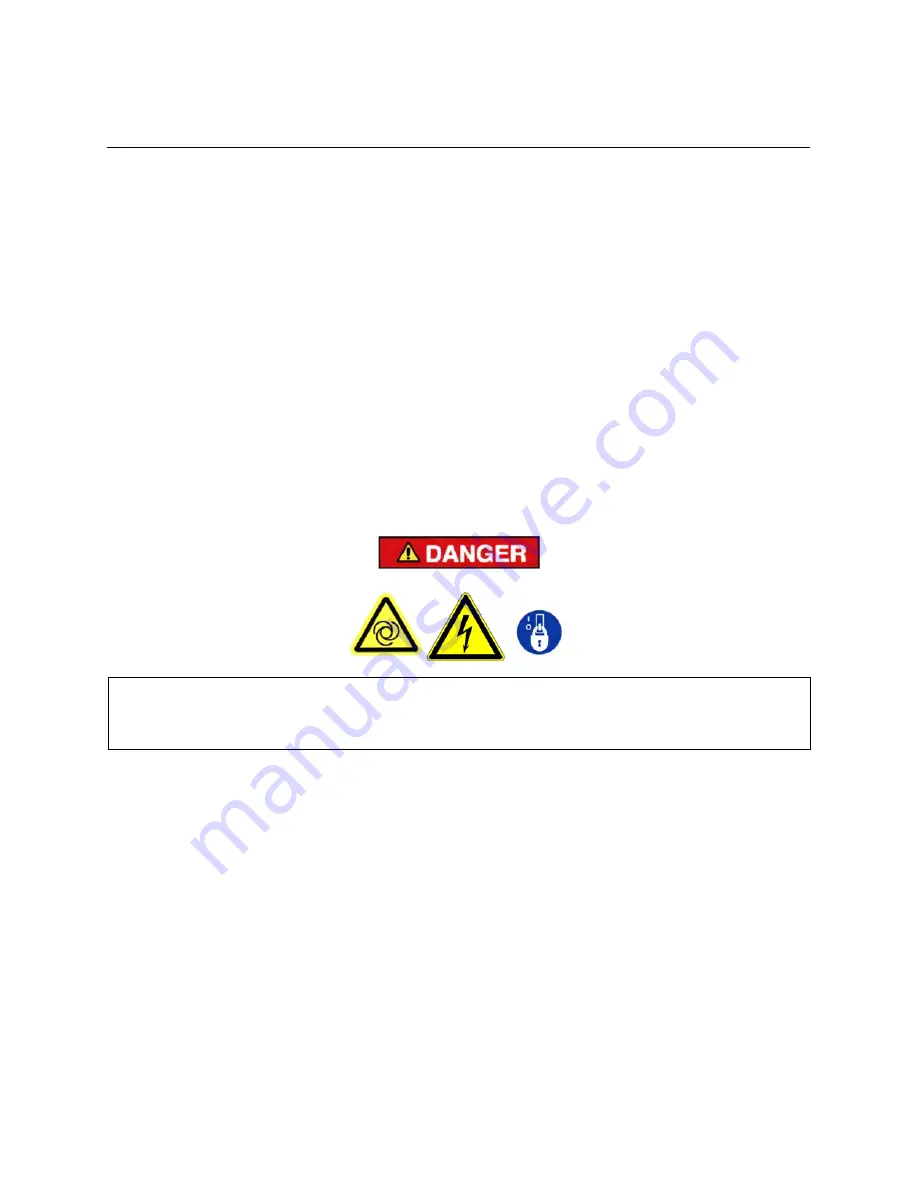
13-9-663 Page 26
SECTION 4
CONTROLS & INSTRUMENTATION
GENERAL DESCRIPTION
- The Gardner Denver Rotary Screw compressor is prewired with all
controls, motor, and starter for the voltage and horsepower at the time of ordering. It is necessary only to
connect the compressor unit to the correct power supply and to the shop air line (and to the appropriate
water supply if water-cooled). A standard compressor unit consists of the compressor, oil reservoir, oil
cooling system and filter, motor type as specified, NEMA 12 starter / control box, and control components
as described below.
AUTOSENTRY OPERATION
Operation of the “AutoSentry” is dependent on selection of an operating mode from the controller keypad.
Prior to starting, the [STOP/RESET] key must be pressed to place the controller into its READY state (as
indicated on the display). Compressor operation may then be started by pressing an operating mode key.
AUTOMATIC is the most commonly selected mode of operation, as it will operate the compressor unit
automatically in the most efficient manner for the demand of the air system.
Once operating, the mode may be changed at any time by pressing a key, and the selected mode will be
displayed in the lower right corner of the message window. Press the [STOP/RESET] key at any time to
stop the compressor under normal conditions.
Detailed instructions for the controller are found in the manual 13-9-653.
Automatic restarting or electrical shock can cause injury or death. Disconnect,
lockout and tagout the unit from the power supply and any other circuits before
servicing unit.
CONTROL DEVICES
Controller
- This compressor unit features the “AUTOSENTRY” controller, which integrates all the control
functions under microprocessor control. Its functions include safety and shutdown, compressor
regulation, operator control, and advisory/maintenance indicators. The keypad and display provide the
operator with a logical and easily operated control of the compressor and indication of its condition. The
controller is factory adjusted for the compressor package, but allows tuning for specific applications.
Relief Valve
- A pressure relief valve(s) is (are) installed in the final discharge line and set to
approximately 120-125% of the unit’s full load operating pressure for protection against over pressure.
Periodic checks should be made to ensure its (their) operation.
The relief valve should be tested for proper operation at least once every year. To test the relief valve,
raise the system operating pressure to 75% of the relief valve set pressure and manually open the valve
with the hand lever. Hold the valve open for a few seconds and allow it to snap shut.
















































